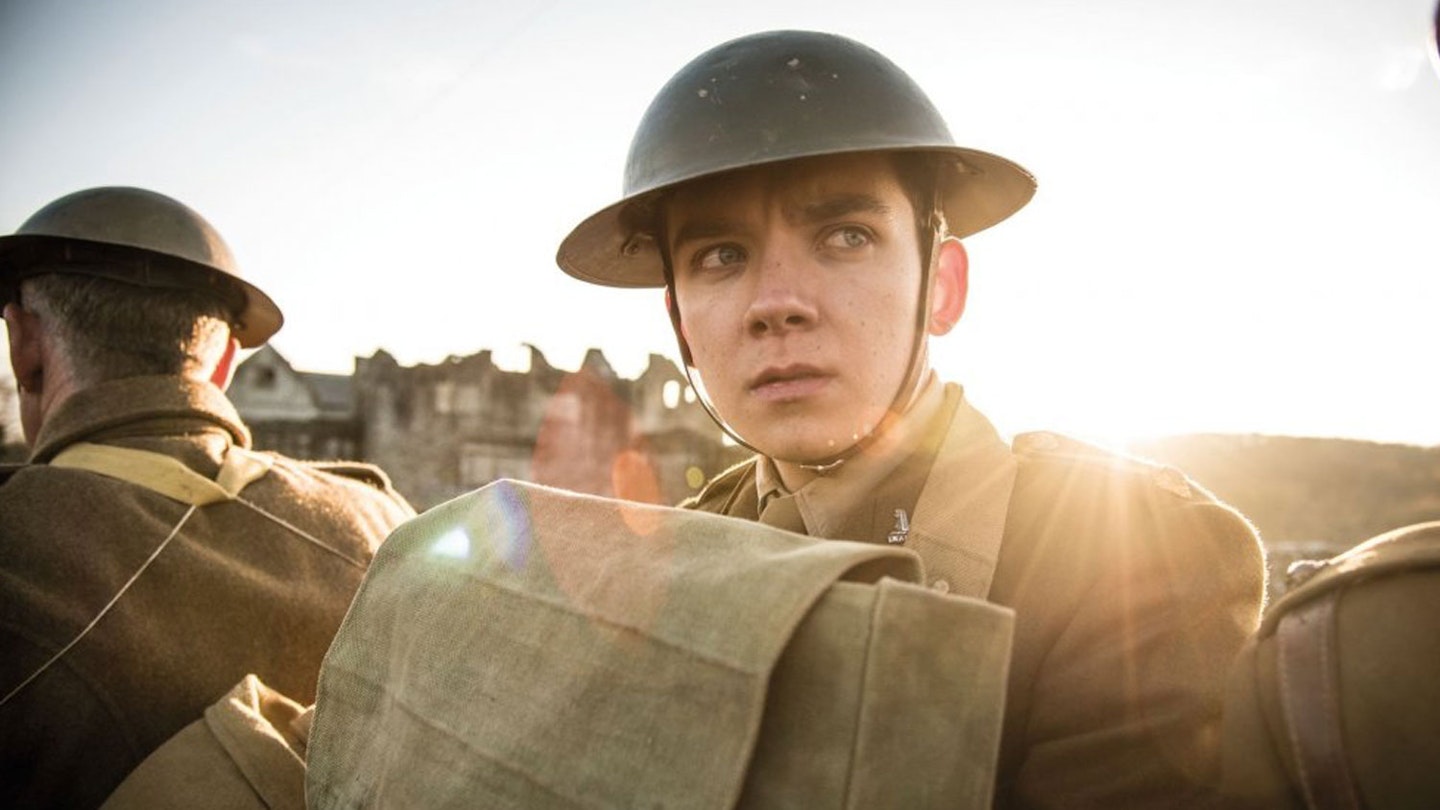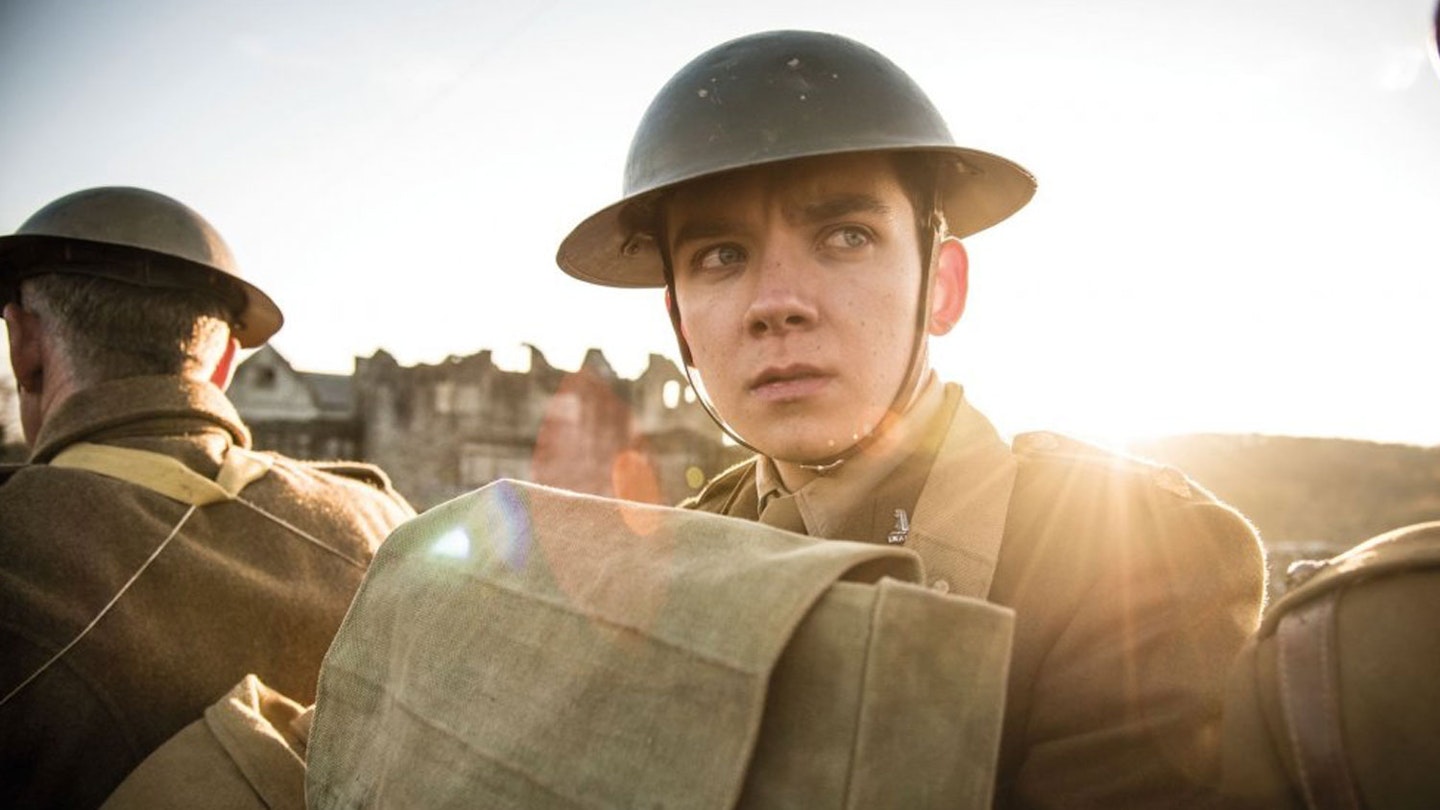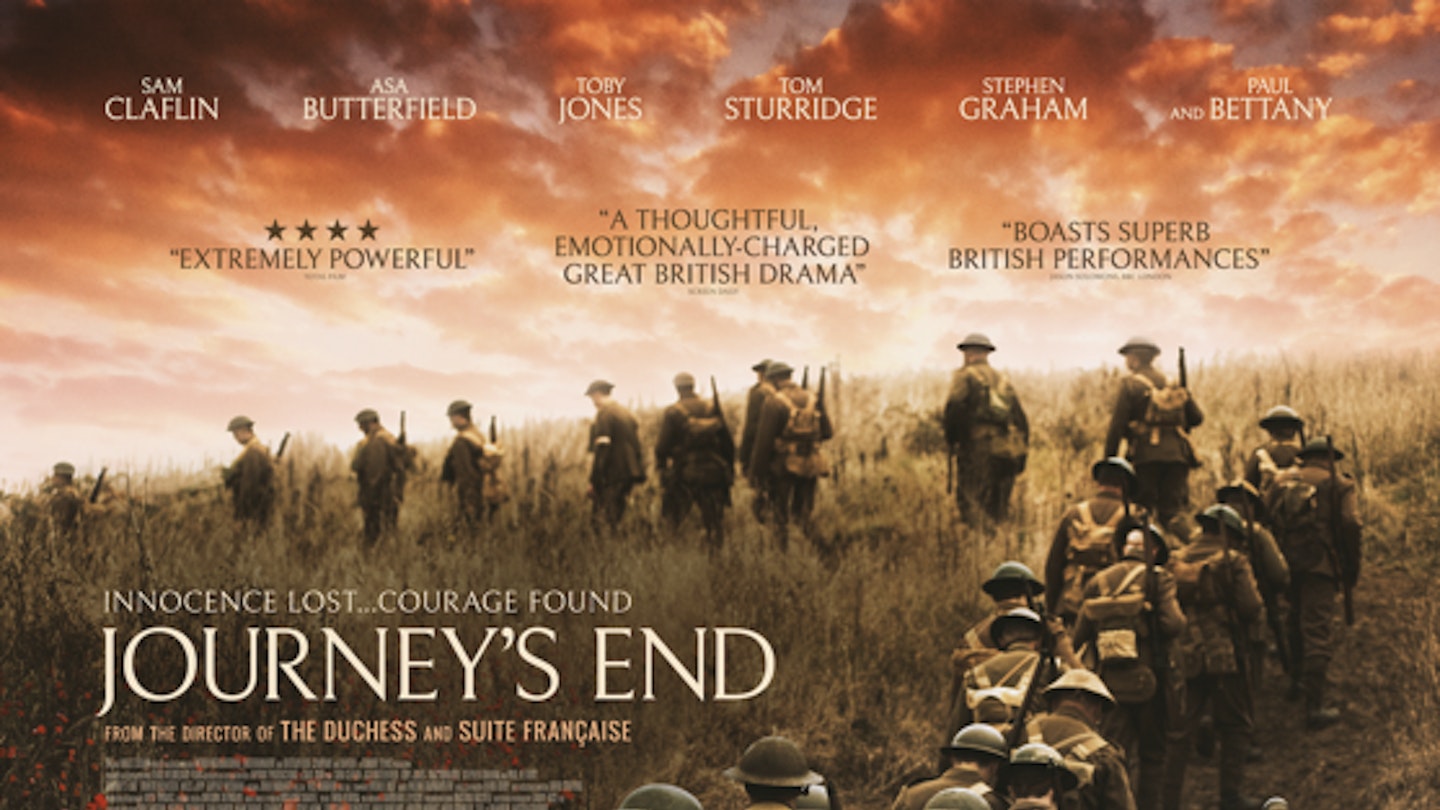
First performed barely a decade after the end of World War I, at a time when the wounds were still raw, Journey’s End is a bracing and understandably angry play. This, the fourth cinematic adaptation, is fittingly bracing and angry (and superbly acted).
This war occupies an uncomfortable position in our popular memory: our cultural picture of its participants reduces them to either hapless Blackadder Goes Forth characters or tragic poets dashing off their final lines before they found out just how dulce et decorum it was to get their guts shot out.
Sam Claflin has never been better.
This is an interesting counterpoint. It’s alive to the sheer unpleasantness of being told you were going to fight for king and country then being sent to hide in a rat-infested hellhole to be eviscerated by shells fired from three miles away. This could sound like cynicism — and this does feel oddly more like a Vietnam film than anything else — but it delivers instead a clarity that could only come from a text written by a veteran for an audience he knew would be riddled with his fellow veterans with finely tuned bullshit detectors regarding life in the trenches.
The cast relish playing against the clichés: Claflin has never been better than here (not even close), throwing the officer-class stiff upper lip out the window and playing Stanhope as a spittle-flecked alcoholic rage case (just not in front of the men). A character who in a more sentimental take on the period would deliver a climactic speech admonishing an unthinking colonel, here grimly — even eagerly — waits for the war that’s killed his spirit to finish the job on his body. Claflin is smart counter-casting: normally a sunny, grinning presence, he dials down the light in his eyes and turns in haunting work. It’s a shame awards aren’t given out for wordless acting: there’s a scene where he sends men to their deaths where he’s playing about 15 emotions at once.
Paul Bettany does equally strong, if more subtle, work as Lieutenant Osborne, Stanhope’s number two. Incarnating British decency under siege, he mothers Stanhope — at one point tenderly tucking him into bed to sleep off another binge — while clearly barely keeping himself together. As he prepares to mount an unnecessary raid on the enemy trenches, he mordantly observes, “At least the weather’s held,” which would be an early candidate for 2018’s most heartbreaking line if it weren’t for another scene where a character gently prepares another for the fact he may not come back to their dugout alive while never actually saying it straight. This may be sledgehammer stuff — the character in question all but magnetises himself to better attract bullets — but it’s effective as hell.
The technical delivery is skilful if at the lower end of the budget scale, but then again, showing exhilarating combat isn’t the point. Claflin, Bettany et al are playing real people trapped in a situation Samuel Beckett would find hopeless. It actually happened, and real people were responsible for putting them there, and this story, written when there were still people alive at whom to direct anger, carries considerable power.



